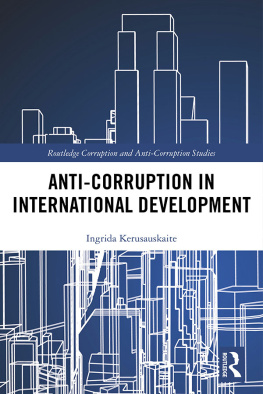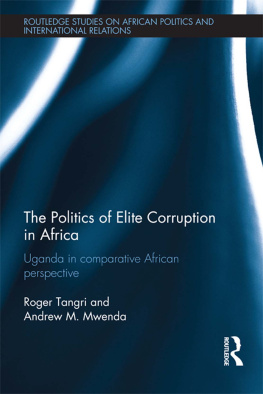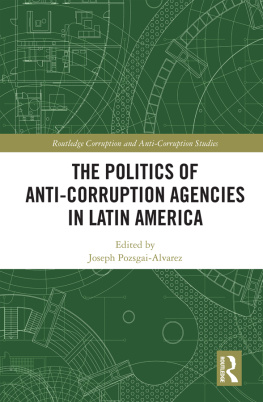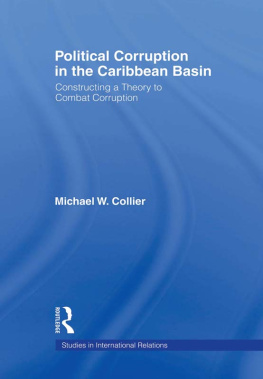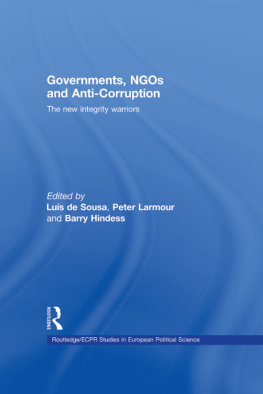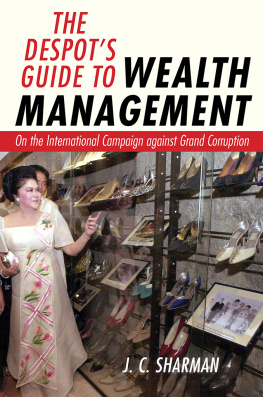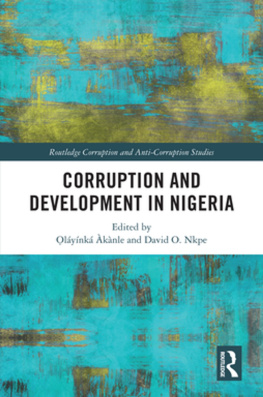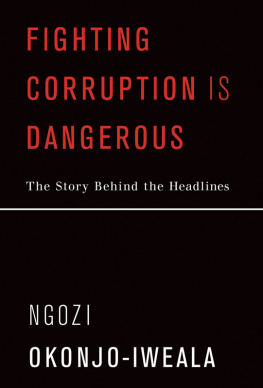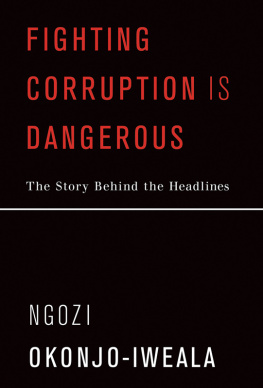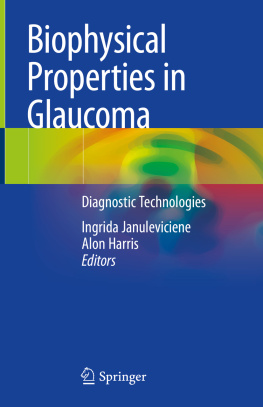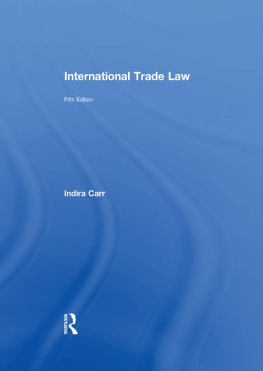Anti-Corruption in International Development provides scholars, policymakers and practitioners with a comprehensive analysis of approaches to combat corruption in the context of international development. International development agencies are constrained in their choice of approaches when engaging governments of countries that face significant corruption challenges. This book contextualises the challenges and opportunities and provides readers with an analysis of potential policy options. The study of the UKs anti-corruption strategies to tackle corruption in developing countries adds important policy and practical perspectives that enhance both the quality of the analysis and the practical value for readers.
Professor Louis de Koker, La Trobe Law School, College of Arts, Social Sciences and Commerce, La Trobe University, Australia
Kerusauskaite gives a refreshing overview of the myriad of public sector approaches to combat corruption. Her work emphasises the need for a global response to corruption with close involvement of civil society and the private sector in a coalition of the committed. Development organisations, bilateral and multilateral, can help create such coalitions.
David Johan Kuijper, Advisor, Financing for Development, World Bank
Corruption is the cancer at the heart of international development. It infuriates donor nations, whose hard-pressed taxpayers and honest investors are swindled, and denies the poorest people the help we want them to receive. The UKs role in international development and anti-corruption is world leading and is at the heart of making the world safer and more prosperous. I congratulate Ingrida on her work in this field.
Rt. Hon. Andrew Mitchell, MP, UK, former UK Secretaryof State for International Development
Anti-Corruption in International Development
Corruption is linked to a wide range of developmental issues, including undermining democratic institutions, slowing economic development and contributing to government instability, poverty and inequality. It is estimated that corruption costs more than 5 per cent of global GDP, and that more than one trillion US dollars are paid in bribes each year. This book unpacks the concept of corruption, its political and ethical influences, its measurement, commitments to combat corruption and ways that this is being attempted.
Building on the research on the nature, causes and consequences of corruption, this book analyses international anti-corruption interventions in particular. It discusses approaches to focus efforts to tackle corruption in developing countries on where they are most likely to be successful. The efforts of the UK are considered as a detailed case study, with comparisons brought in as necessary from other countries and multilateral institutions anti-corruption efforts.
Bridging a range of disciplines, Anti-Corruption in International Development will be of interest to students and scholars of international development, public administration, management, international relations, politics and criminal justice.
Ingrida Kerusauskaite is an Affiliated Lecturer at the Centre of Development Studies at the University of Cambridge and an Advisor on International Development for KPMG.
Routledge Corruption and Anti-Corruption Studies
The series features innovative and original research on the subject of corruption from scholars around the world. As well as documenting and analysing corruption, the series aims to discuss anti-corruption initiatives and endeavours, in an attempt to demonstrate ways forward for countries and institutions where the problem is widespread. The series particularly promotes comparative and interdisciplinary research targeted at a global readership.
In terms of theory and method, rather than basing itself on any one orthodoxy, the series draws broadly on the tool kit of the social sciences in general, emphasizing comparison, the analysis of the structure and processes, and the application of qualitative and quantitative methods.
Anti-Corruption in International Development
Ingrida Kerusauskaite
Corruption Scandals and their Global Impacts
Edited by Omar E. Hawthorne and Stephen Magu
For more information about this series, please visit: https://www.routledge.com/Routledge-Corruption-and-Anti-Corruption-Studies/book-series/RCACS
Anti-Corruption in International Development
Ingrida Kerusauskaite
First published 2018
by Routledge
2 Park Square, Milton Park, Abingdon, Oxon OX14 4RN
and by Routledge
711 Third Avenue, New York, NY 10017
Routledge is an imprint of the Taylor & Francis Group, an informa business
2018 Ingrida Kerusauskaite
The right of Ingrida Kerusauskaite to be identified as author of this work has been asserted by her in accordance with sections 77 and 78 of the Copyright, Designs and Patents Act 1988.
All rights reserved. No part of this book may be reprinted or reproduced or utilised in any form or by any electronic, mechanical, or other means, now known or hereafter invented, including photocopying and recording, or in any information storage or retrieval system, without permission in writing from the publishers.
Trademark notice: Product or corporate names may be trademarks or registered trademarks, and are used only for identification and explanation without intent to infringe.
British Library Cataloguing in Publication Data
A catalogue record for this book is available from the British Library
Library of Congress Cataloging in Publication Data
A catalog record for this book has been requested
ISBN: 978-1-138-57534-9 (hbk)
ISBN: 978-1-351-27204-9 (ebk)
Typeset in Times New Roman
by Wearset Ltd, Boldon, Tyne and Wear
Contents
Figures
1.1 Top 5 OECD DAC members ODA contributions (US$ millions)
3.1 An illustration of short-term versus long-term approaches
3.2 Types of corruption based on the nature of the state and business
3.3 Theoretical approaches to corruption
3.4 Corruption and state institutions
3.5 The influence on and of corruption
4.1 UK net ODA levels 19702014 ( millions)
4.2 DFID spending in priority countries, 20142015 ( millions)
4.3 UK bilateral aid spending in 2014 by sector ( thousands)
4.4 DFIDs anti-corruption expenditure, 20072018 ( millions)
4.5 DFID spending on anti-corruption, 20042020
4.6 CPI ratings
4.7 DFIDs approach to anti-corruption
4.8 Key factors in anti-corruption programming
4.9 Stages of corruption interventions
4.10 Interdependencies between different institutions in the legal sector in achieving results
4.11 Interdependencies between different institutions in achieving results from national audits
6.1 Breakdown of UK bilateral aid in 2014
6.2 2014 bilateral spending by regions
6.3 Donors marginal gains as a function of the recipient countrys wealth
7.1 The requirements of various policy alignments for successful programmes
Tables
2.1 Definitions of corruption used by multilateral agencies
2.2 Forms of corporate corruption or misconduct that may be damaging to states economies
2.3 Categories of corruption as relevant in the context of criminalisation and law enforcement


